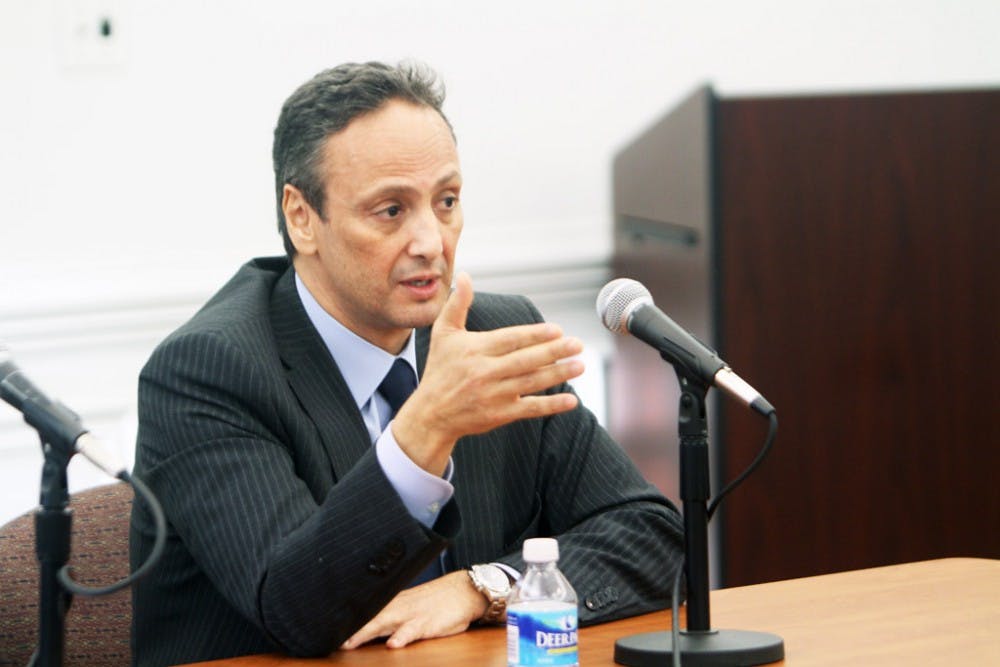The Middle East is becoming increasingly present in the global community, Kuwait Ambassador Salem Al-Sabah said Thursday.
At the inaugural Arabic Majors Distinguished Lecture series, speakers Al-Sabah and Carl Ernst, William R. Kenan Jr. distinguished professor at the University of North Carolina at Chapel Hill, discussed how the Middle East’s rich literary and cultural history has influenced modern politics. Arabic, one of the fastest growing languages in the world, has become increasingly prevalent in the global sphere.
“[Arabic] has an enduring cultural property in the global heritage in civilization,” said Ernst, co-director of the Carolina Center for the Study of the Middle East and Muslim Civilizations. “Arabic language and literature... should be a topic of high importance for the curriculum of humanistic studies.”
Arabic is one of six languages officially used in United Nations meetings. Given the Middle East’s vital role in world politics, knowledge of Arabic language and culture should be a top priority in the United States, Ernst said.
“If you open a map, you can make a very, very good argument that the Arab countries are in the center of the world,” Al-Sabah said. “We are a land [connecting] three continents—Asia, Africa and Europe.”
Western media often skews Americans’ perceptions of Arab nations, Al-Sabah said, noting that it is difficult to open a newspaper or watch television news programs without seeing something about the Middle East.
“Everything that comes up about the Middle East... is about one of two things,” he said. “It’s about oil or turmoil.... You have no idea how many misconceptions are out there that need to be clarified.”
Al-Sabah added that Arabic-American speakers, who have access to current events in the Middle East through Arabic media sources, are in a unique position to help correct some of these misconceptions.
The background of Arabic language and literature, such as pre-Islamic poetry and the Quran, provides historical context to contemporary Middle Eastern issues. Ernst noted that by the 10th century, Arabic writers covered a wide range of subjects, including religion, grammar and philology. He added that many non-Muslim groups, including Arabic-speaking Jews, contributed extensively to Arabic literature through their own writing.
A massive translation movement, which began around 800 C.E., marked an important landmark in Arabic literary history. The movement featured the translation of scientific and philosophical literature from Greek into Arabic, Ernst said. Arabic literature also became notable for its geographic component.
“Arabic became the medium for describing the world, much more comprehensively than was possible in other languages before the European expansion of the 16th century,” he added. “Arab geographers combined personal travel narrative with administrative reports to gain much more extensive knowledge of the world than their predecessors.”
Still, Ernst noted that, given its breadth, merely skimming the surface of the Arab world’s “grand history” does not do it justice.
“[Arabic] is an academic pursuit and a skill at the same time,” said senior Andi Frkovich, who introduced the speakers. “It was beneficial to hear [how knowing Arabic] might benefit you in the future and to hear the rich history of the language.”
Get The Chronicle straight to your inbox
Signup for our weekly newsletter. Cancel at any time.

